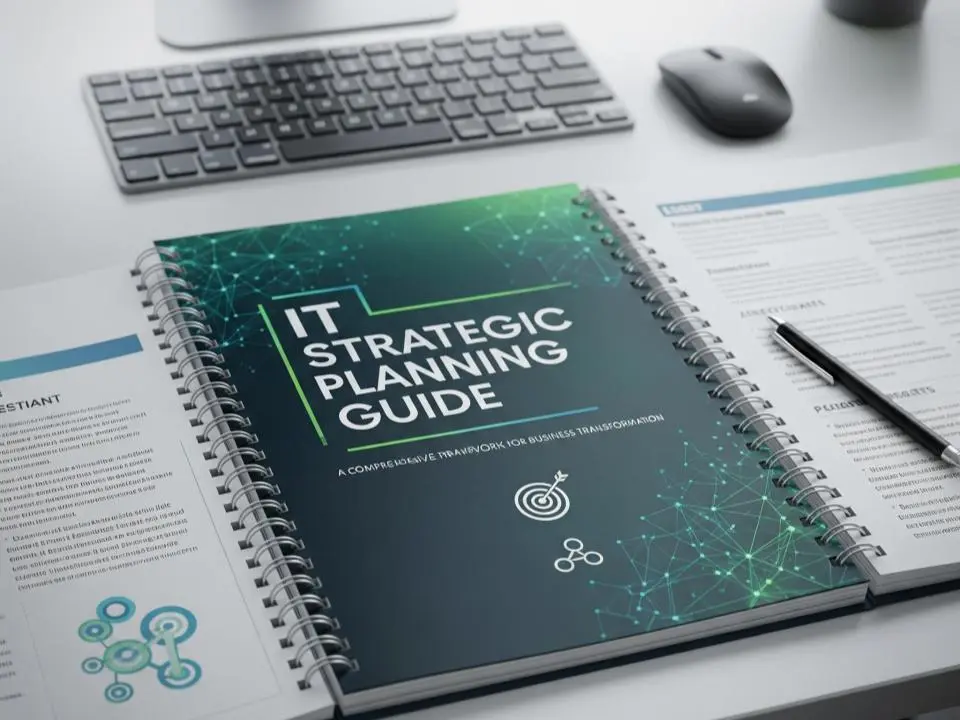Making the Right Choice for Your IT Needs
Choosing the best managed IT services provider (MSP) can feel overwhelming, especially with so many options available. Whether you’re a small business owner or an operations manager, finding the right MSP is crucial for maintaining reliable IT support, robust security, and strategic growth.
Not all IT providers are created equal. Some are reactive, only stepping in when problems arise, while others take a proactive, strategic approach to managing your technology. The key is to find a provider who aligns with your business goals and can adapt as your needs evolve.
Why Choosing the Right MSP Matters
In today’s fast-paced digital world, businesses of all sizes rely on technology to stay competitive. From maintaining data security to ensuring seamless operations, choosing the best managed IT services provider (MSP) can make a significant difference in your company’s success.
But with countless options available, how do you select the right IT partner? In this guide, we’ll break down the key criteria to help you evaluate potential MSPs and make an informed decision.
1. Responsiveness: The Need for Real-Time Support
One of the most critical aspects of managed IT services is responsiveness. Downtime can cost businesses thousands of dollars, so you need a provider that responds to issues immediately and efficiently.
What to Look For:
- 24/7 Monitoring & Support: Make sure your MSP offers round-the-clock monitoring to catch issues before they disrupt operations.
- Fast Response Times: Check their Service Level Agreements (SLAs) to see how quickly they address critical issues.
- Proactive Monitoring: The best MSPs use automated tools to detect potential problems and resolve them before they impact your business.
Example:
A Seattle-based architectural firm faced delays due to outdated IT support. Switching to an MSP with 24/7 monitoring and real-time response reduced their downtime and kept projects on schedule.
2. Industry Expertise: Not One-Size-Fits-All
Different industries have unique IT needs. Whether it’s ensuring HIPAA compliance in healthcare or providing remote collaboration tools for engineering firms, your MSP should understand your specific industry challenges.
What to Look For:
- Track Record in Your Industry: Ask for case studies or references from similar businesses.
- Specialized Solutions: Does the MSP have experience with your core software and compliance requirements?
- Custom IT Plans: The best providers tailor their services to fit your business model rather than using generic solutions.
Example:
Succurri’s experience with landscape construction contractors highlights how tailored cloud solutions can help field teams access documents and track time from any device, enhancing on-site efficiency.
3. Transparency and Real-Time Reporting
You should always know what’s happening with your IT environment. An MSP that offers transparent reporting and budgeting will help you make better decisions and avoid unexpected costs.
What to Look For:
- Quarterly Business Reviews (QBRs): Ensure they provide regular updates on IT performance and upcoming needs.
- Transparent Billing: Look for clear invoicing with itemized services.
- Reporting Dashboards: A user-friendly dashboard should give you insights into system health, performance metrics, and service history.
Example:
Credit unions working with Succurri benefit from real-time dashboards that outline upcoming maintenance, security updates, and lifecycle planning for hardware and software.
4. Scalability: Growing with Your Business
As your company grows, your IT needs will evolve. The best MSPs provide scalable solutions that align with your business trajectory.
What to Look For:
- Cloud Solutions: Scalable cloud-based services enable easy addition or removal of users and resources.
- Flexible Contracts: Avoid long-term contracts that lock you into services you may outgrow.
- IT Strategy (vCIO): A virtual Chief Information Officer should help you plan technology upgrades and capacity expansions as your business scales.
Example:
When a manufacturing firm needed to integrate new CNC machinery, Succurri provided a scalable IT infrastructure that ensured consistent network performance and data integrity.
5. Cybersecurity: Protecting Your Data and Reputation
Cyber threats are on the rise, and small to medium-sized businesses are prime targets. Your MSP must offer comprehensive cybersecurity measures to safeguard your digital assets.
What to Look For:
- Multi-Layered Security: Firewalls, endpoint protection, and encryption should be standard.
- Compliance Support: Particularly important for regulated industries like healthcare and finance.
- Employee Training: Human error is a leading cause of data breaches; your MSP should educate your staff.
Example:
Succurri’s cybersecurity solutions include anti-virus, firewall management, and data encryption, which helped a healthcare client maintain compliance while protecting sensitive patient data.
6. Custom Solutions: Preserving Your Competitive Edge
A good MSP doesn’t push cookie-cutter solutions. Instead, they assess your unique needs and craft IT strategies that align with your business goals.
What to Look For:
- Customization: Can they adapt to your existing infrastructure rather than overhauling everything?
- Legacy System Support: Do they offer modernization of critical, bespoke software?
- Long-Term Maintenance: Ensure they will continue to support and upgrade customized solutions.
Example:
Succurri helped a specialized healthcare provider update and maintain a legacy business application, preserving their competitive advantage while modernizing their IT infrastructure.
7. Flexibility and Adaptability
Technology evolves rapidly. Your MSP should not only stay ahead of IT trends but also adapt quickly to your changing needs.
What to Look For:
- Agility in Service Delivery: Can they pivot quickly if your requirements change?
- On-Demand Support: Scalable support options to match your business cycles.
- Continuous Improvement: Regularly updating their service portfolio to include new technologies.
Example:
During the pandemic, Succurri helped a wine-tasting room architecture firm transition to a fully remote, cloud-based environment, allowing seamless collaboration despite office closures.
8. Customer Support: Always There When You Need Them
Issues can arise at any time, and the best MSPs offer reliable help desk support. Make sure they can remotely troubleshoot and resolve problems quickly.
What to Look For:
- Help Desk Availability: Ensure they offer 24/7 support.
- Multi-Channel Access: Phone, email, chat, and remote desktop support.
- Customer Satisfaction Metrics: Look for MSPs with high satisfaction ratings.
Example:
A trades contractor partnered with Succurri to streamline on-site IT support, significantly reducing delays in project execution.

Final Thoughts: Partnering for Success
Choosing the best managed IT services provider is a strategic decision. The right MSP will not only fix your IT issues but also align technology with your business strategy. They should provide proactive monitoring, industry expertise, and scalable solutions, all while keeping cybersecurity top of mind.
By focusing on responsiveness, transparency, scalability, and industry knowledge, you’ll be better equipped to select a partner who can support your growth while minimizing risk.
Get IT Right the First Time
Ready to find an MSP that truly understands your needs? Schedule a consultation with Succurri today to learn how our managed IT services can support your business.






